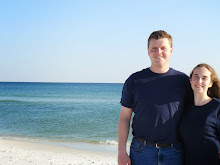I read It Couldn't Just Happen as a pre-read for my children -- especially this year for my 11/12 year-old son. It is on Ambleside Online's booklist for Year 6. I think that's a pretty good age for this book, though a little older or curious younger ones could enjoy and benefit from it, too.
This book presents some of the main points in the Creation versus Evolution question, and discusses them, with a very evident bias toward the Creation perspective and Christianity.
I thought it was an interesting book. Although it presented subjects I was rather familiar with, I learned some things myself reading through it.
I do have a couple criticisms (as usual):
1) Sometimes there was a bit too much re-summarizing and repetition for my taste. It might be because the chapters are fairly short, and the attempt to introduce and conclude each topic makes for some repetition on the same theme. It may not be noticed too much if the chapters aren't read back-to-back as quickly as I read them toward the end of my reading, which is when I noticed it most.
2) This is my bigger criticism. I wasn't thrilled with some of the way things were presented. The author sometimes reduced arguments to an either-or scenario that wasn't quite accurate, or presented something as "the only possible explanation," when that isn't really the case. For one of the more blatant instances, take the following quote from page 84, presented after a discussion of statistics demonstrating the extreme unlikelihood of life coming about by chance:
"Possible or impossible? The answer is clear. Life simply could not have come about by chance. No matter how much time the evolutionist thinks passed from Earth's beginning until life evolved, it could not have happened.
"Since life could not have begun by chance, it must have been purposely created by God. There is no other choice. If one of only two possible choices could not have happened, the other one did!"
I realize that the author is trying to simplify for children here, but sometimes oversimplification can create problems of its own. This quote just simply doesn't add up. No matter how unlikely something may seem, it's impossible to prove beyond the shadow of a doubt how life began on earth, either toward the Creation side or toward Evolution. None of us witnessed it, and no one can replicate the event. Obviously, if the answer were so clear as the author states, there would be no debate at all, and no point to the book. Also, to say that the only two options are the evolution of complete non-life into life and a purposeful creation by God is not quite accurate. Other explanations could and have been offered before, although the debate usually comes down to these two because they are the most commonly adhered to.
Yes, all that explanation would probably make for a cumbersome book for many grade-school children. However, for a thinker, this sort of oversimplification may also be a problem, if the child sees the inconsistencies in logic and comes to feel that things just don't quite add up. We should try to avoid underestimating children, as well as overstating our case, no matter who our audience. I don't think the author is trying to be dishonest. It's easy to overstate when arguing one side of something. But that can backfire. Perhaps just expressing things a little less dramatically would have been sufficient to alleviate the problem if he didn't want delve deeper.
I just made note of these things in the book, and can discuss with my children. I didn't consider it a big deal for them, as the topics presented aren't new to my children, and this author's perspective will be far from the only one they get. We all sat down as a family and watched the recent Ken Ham/Bill Nye debate, for example, and for years we've tried to give the children other materials to help address some of these questions. Evolution versus Creation is one of the key ongoing debates of our age. As our children get older, we want to give them a more balanced perspective than we gave when they were younger, and present more from the other side as their understanding increases, since when they go out into the world at large that may be most of what they are presented with in many areas. Plus, if one hopes to discuss the subject seriously with someone from a different perspective, especially with a view toward persuading them differently, it helps to be educated on it. If I were an evolutionist, I would have trouble taking very seriously a creationist who came into a discussion making many such statements as I quoted above.
Overall, I liked but didn't love this book. While not exceptional, it's a good resource to add to a balanced apologetics-oriented theme. It will probably stay part of our curriculum, partly because I've read it already and marked it for discussion points. There may be other resources that would be just as good or better, though, so if you're looking I wouldn't say this is a must-have.
For more book reviews, follow this link or click on the tab at the top of the page.
This book presents some of the main points in the Creation versus Evolution question, and discusses them, with a very evident bias toward the Creation perspective and Christianity.
I thought it was an interesting book. Although it presented subjects I was rather familiar with, I learned some things myself reading through it.
I do have a couple criticisms (as usual):
1) Sometimes there was a bit too much re-summarizing and repetition for my taste. It might be because the chapters are fairly short, and the attempt to introduce and conclude each topic makes for some repetition on the same theme. It may not be noticed too much if the chapters aren't read back-to-back as quickly as I read them toward the end of my reading, which is when I noticed it most.
2) This is my bigger criticism. I wasn't thrilled with some of the way things were presented. The author sometimes reduced arguments to an either-or scenario that wasn't quite accurate, or presented something as "the only possible explanation," when that isn't really the case. For one of the more blatant instances, take the following quote from page 84, presented after a discussion of statistics demonstrating the extreme unlikelihood of life coming about by chance:
"Possible or impossible? The answer is clear. Life simply could not have come about by chance. No matter how much time the evolutionist thinks passed from Earth's beginning until life evolved, it could not have happened.
"Since life could not have begun by chance, it must have been purposely created by God. There is no other choice. If one of only two possible choices could not have happened, the other one did!"
I realize that the author is trying to simplify for children here, but sometimes oversimplification can create problems of its own. This quote just simply doesn't add up. No matter how unlikely something may seem, it's impossible to prove beyond the shadow of a doubt how life began on earth, either toward the Creation side or toward Evolution. None of us witnessed it, and no one can replicate the event. Obviously, if the answer were so clear as the author states, there would be no debate at all, and no point to the book. Also, to say that the only two options are the evolution of complete non-life into life and a purposeful creation by God is not quite accurate. Other explanations could and have been offered before, although the debate usually comes down to these two because they are the most commonly adhered to.
Yes, all that explanation would probably make for a cumbersome book for many grade-school children. However, for a thinker, this sort of oversimplification may also be a problem, if the child sees the inconsistencies in logic and comes to feel that things just don't quite add up. We should try to avoid underestimating children, as well as overstating our case, no matter who our audience. I don't think the author is trying to be dishonest. It's easy to overstate when arguing one side of something. But that can backfire. Perhaps just expressing things a little less dramatically would have been sufficient to alleviate the problem if he didn't want delve deeper.
I just made note of these things in the book, and can discuss with my children. I didn't consider it a big deal for them, as the topics presented aren't new to my children, and this author's perspective will be far from the only one they get. We all sat down as a family and watched the recent Ken Ham/Bill Nye debate, for example, and for years we've tried to give the children other materials to help address some of these questions. Evolution versus Creation is one of the key ongoing debates of our age. As our children get older, we want to give them a more balanced perspective than we gave when they were younger, and present more from the other side as their understanding increases, since when they go out into the world at large that may be most of what they are presented with in many areas. Plus, if one hopes to discuss the subject seriously with someone from a different perspective, especially with a view toward persuading them differently, it helps to be educated on it. If I were an evolutionist, I would have trouble taking very seriously a creationist who came into a discussion making many such statements as I quoted above.
Overall, I liked but didn't love this book. While not exceptional, it's a good resource to add to a balanced apologetics-oriented theme. It will probably stay part of our curriculum, partly because I've read it already and marked it for discussion points. There may be other resources that would be just as good or better, though, so if you're looking I wouldn't say this is a must-have.
For more book reviews, follow this link or click on the tab at the top of the page.










No comments:
Post a Comment